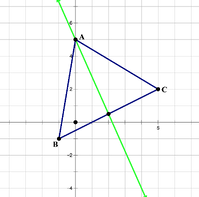GMAT & MBA Admissions Blog
Mark Skoskiewicz
Recent Posts
 I often get asked to help our students decide between taking the GMAT and the GRE. Here are the three most fundamental questions you should be asking as you make your decision.
I often get asked to help our students decide between taking the GMAT and the GRE. Here are the three most fundamental questions you should be asking as you make your decision.
Tags: GRE Verbal, GRE vs. GMAT, GMAT reading comprehension, GMAT, Reading Comprehension
 How can you manage your time while taking the GMAT? I often get asked this question. For most people, the Quantitative and Integrated Reasoning questions pose the most significant time pressures, so in this post I will be focusing on those two sections.
How can you manage your time while taking the GMAT? I often get asked this question. For most people, the Quantitative and Integrated Reasoning questions pose the most significant time pressures, so in this post I will be focusing on those two sections.
Tags: GMAT, time management
GMAT Math: 5 Tips for Data Sufficiency Questions
Posted by Mark Skoskiewicz on February 5, 2015 12:16:02 PM CST
 GMAT Data Sufficiency problems present you with some initial information and a question, followed by two statements. You have to decide whether the information contained in each statement is sufficient, when combined with the initial information, to give a definite answer to the question. In this case, a definite answer means being able to answer either “definitely yes” or “definitely no” to the question. If you can only answer “definitely maybe” then the statement is not sufficient by itself. If neither statement is sufficient by itself to give a definite answer, you then evaluate whether the two statements taken together are sufficient to find a definite answer. Some questions involve solving for a value; for these questions, a statement is sufficient if it allows you to solve for one, but no more than one, value.
GMAT Data Sufficiency problems present you with some initial information and a question, followed by two statements. You have to decide whether the information contained in each statement is sufficient, when combined with the initial information, to give a definite answer to the question. In this case, a definite answer means being able to answer either “definitely yes” or “definitely no” to the question. If you can only answer “definitely maybe” then the statement is not sufficient by itself. If neither statement is sufficient by itself to give a definite answer, you then evaluate whether the two statements taken together are sufficient to find a definite answer. Some questions involve solving for a value; for these questions, a statement is sufficient if it allows you to solve for one, but no more than one, value.
Tags: math skills, GMAT
A Recipe for GMAT Reading Comprehension Practice
Posted by Mark Skoskiewicz on December 9, 2014 12:32:00 PM CST

When we’re helping students prepare for the GMAT, we tend to find that the most stressed out students are those that are really struggling with the quant section. But paradoxically, those that are truly lacking math skills can be the easiest students to help. Why?
Key GMAT Sentence Correction Concepts: Diction
Posted by Mark Skoskiewicz on November 4, 2014 9:46:00 AM CST


